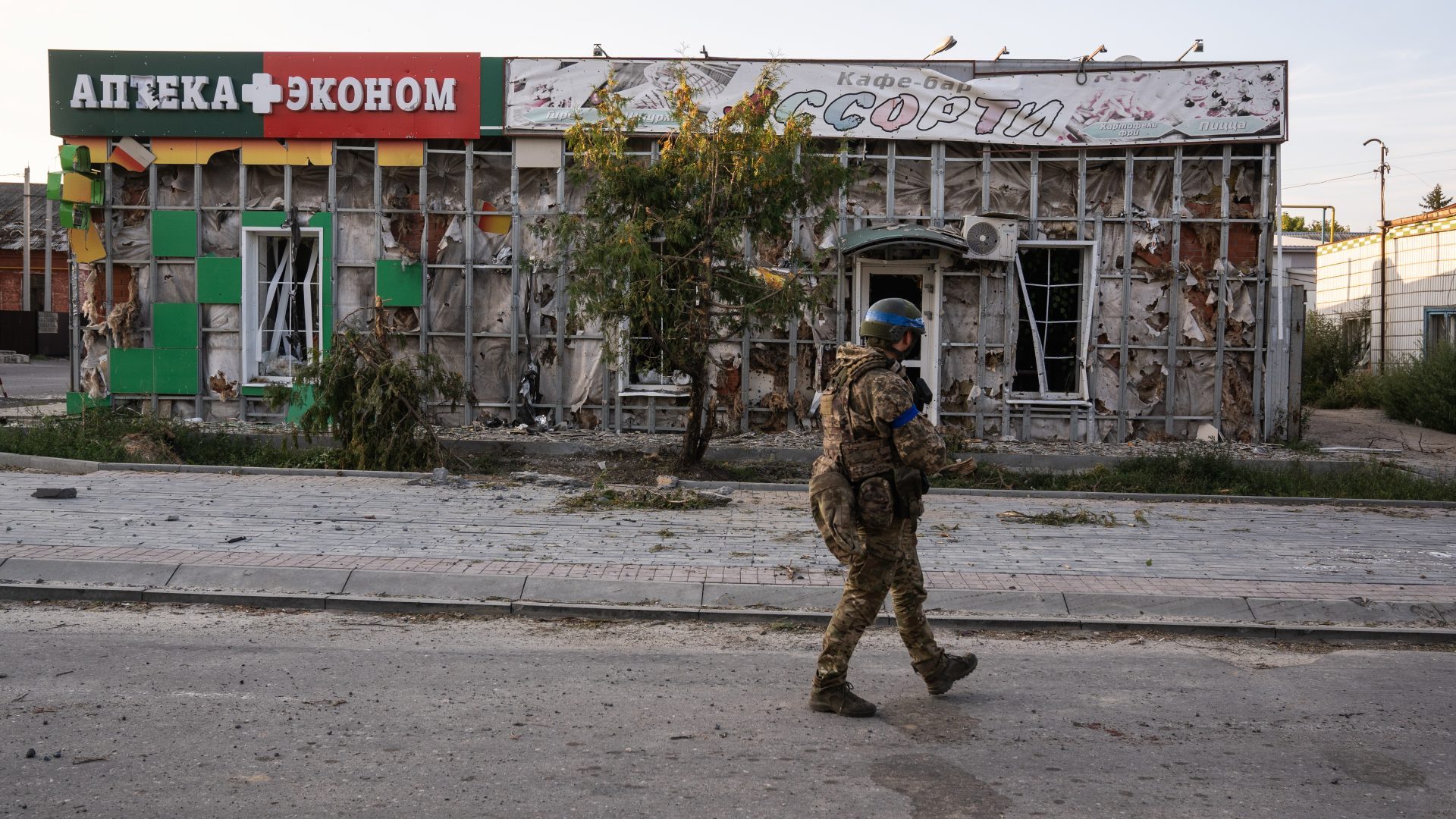Just when the military staff colleges of the west were getting used to the idea of a new era trench warfare, the new Blitzkrieg happened.
At the start of August, there was strong evidence that the land war in Ukraine had hit a technological impasse. Both sides had become adept at using drones to take out moving vehicles, and were locked in a battle of tactical electronic warfare in the trenches.
The days when large formations of tanks and armoured vehicles could punch a hole in the adversary’s defences and drive deep into their rear were, it seemed, over.
It is, however, two weeks now since Ukrainian armed forces smashed through Russia’s border defences in the Kursk region. They have since advanced at least 30km inside Russian territory, moving freely, taking thousands of prisoners and meeting little organised opposition.
According to the Telegram channel of the Russian intelligence service, governance has broken down in the areas affected. “There are no police, no firefighters and no representatives of the administration.”
However, footage has emerged of civilians going about their everyday lives under a makeshift Ukrainian occupation – adding further surrealism to the situation.
The military reasons for Ukraine’s success can only be known partially at this stage. Clearly Russia failed to construct defence lines on its borders, concentrating both troops and obstacles in those parts of Ukraine where it is on the offensive. Clearly, also, Ukraine achieved a surprise.
Only once the dust has settled will we know why – on this occasion – Russia’s feared attack helicopters failed to stop the advance. Likewise with any tactical innovations Ukraine’s army may have deployed, and with the cost of the offensive in Ukrainian casualties (which is said to be high).
As to the objectives for the advance, these too can be guessed more closely. Tactically, the effect has been to divert Russian troops earmarked for attacks into Ukraine’s Donetsk region and against the city of Kharkiv. Strategically, so long as Vladimir Putin does not escalate with a nuclear strike, it shows that western fears that he will do so if defeated may be unfounded.
In the information war, the effects of the Ukrainian advance will be felt both in Moscow and Washington. No matter how hard the Russian media is covering up the Ukrainian success, the political elite know the truth – and it tells them, yet again, that Putin is an inept leader who may have bitten off more than he can chew.
To a US political class that had grown weary of supporting Ukraine, the advance shows Washington is getting “bang for its bucks”; and that Ukrainians are reconciled neither to stalemate nor defeat.
But this is a risky operation. The military risks alone are large, once Ukraine’s advance runs out of steam and logistical support. Sooner or later Russia will refocus its tank-killing helicopters, artillery and aircraft on the task of picking off Ukrainian vehicles. At this point, Kyiv will need to decide whether it wants to dig in on the sovereign territory of another country, or retreat, having made a point.
The political risks are also big. Ukraine’s forces currently control 28 Russian villages – and while around 78,000 people are reported to have fled to the regional capital, Kursk, many of the elderly have stayed.
There is, at present, no civilian resistance – but Ukrainian commanders, who have been trained by western counterparts, will be well aware that they have a legal obligation as the occupying power to replace the civil administration that has collapsed, and uphold the law.
If things go well for Ukraine, it ends up with a chunk of territory to use as a bargaining chip in negotiations after a ceasefire; if they go badly, it will end up having to police a Russian insurgency and maintain the rule of law on hostile territory.
However, by overwhelming Russian forces on the battlefield, and once again humiliating Putin, Ukraine’s leadership may calculate that these are risks worth taking.
Until last week, Ukraine’s problem was that it lacked what the military calls a “theory of victory”: a plausible concept for depriving Russia of both the means to fight and the will to fight. Instead, it had a concept of survival: it would blunt the Russian summer offensive, inflict massive casualties, and wait for the west to crank up its armouries and treasuries in Ukraine’s support.
This advance, however, answers one part of the question “how can Ukraine win?”. If the means can be found – either through air power, drones, artillery strikes or tactical genius – to turn the fighting inside Ukraine to the defender’s advantage, then Ukraine has shown how it might drive the Russian occupiers back to their start-lines.
While the advance into Kursk Oblast was under way, Ukrainian long-range strikes hit bridges, oil depots and airfields. The thought must surely be forming in the minds of Putin’s generals that, if Ukraine were to concentrate such long-range firepower alongside a counter-offensive like that staged in Kursk, it might start taking back serious chunks of its own territory.
I have no doubt that, if they pull this off, the Ukrainian leadership will say to the west: help us do it again, at scale. And I have no hesitation in advising that we should do so.
Russia is waging war on the west through several proxies. Russian disinformation channels were hard at work during the anti-refugee riots and are hard at work in support of Trump. Russia’s ally, Iran, seems determined to escalate the Israel-Gaza war into a regional conflict (aided and abetted by the out-of-control Netanyahu government).
Anything that gives them pause; above all anything that disabuses the Russian ethno-nationalist elite of its invincibility, has to be welcomed.
Ultimately this war will be settled by geopolitical willpower: does the west have the stomach to wage economic war on Russia and pay for Ukraine’s survival? Here, everything depends on the outcome of the Harris v Trump battle, which is a war of memes and election rallies, not bombs and bullets.
At the very least, Ukraine’s battlefield success will raise the salience of continued solidarity. For the first time in 80 years a country has attacked the territory of a nuclear armed state and – for now – got away with it. All objective observers have to read that as a sign of Russian weakness and dependency on its Chinese ally.
But this is not over, and like all wars, the potential for accident is huge.




